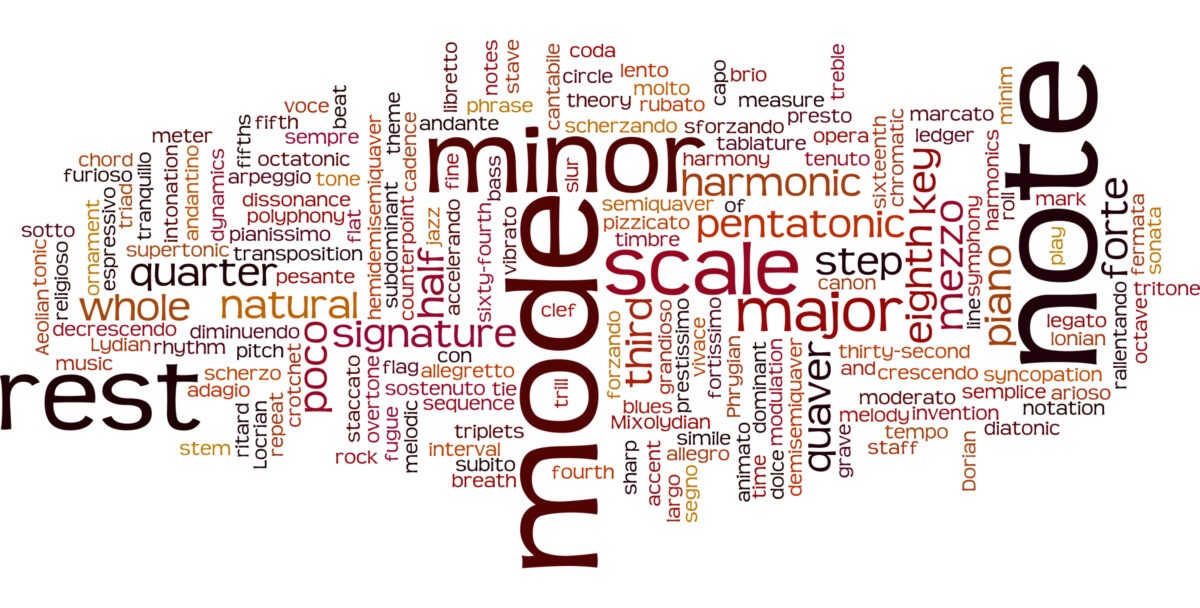What Is Music Theory and Why Is It Important?
Music is a universal language that transcends borders and cultures. It is a powerful form of expression that can evoke emotions and memories.
However, one must understand its underlying structure and principles to truly appreciate and create music. This is where music theory comes in.
Music theory is the study of the fundamental elements of music, including pitch, rhythm, harmony, and melody. It’s like the grammar of music, providing a framework for understanding and interpreting musical compositions.
Basic music theory is important for new piano students, parents of young music lovers, and adults looking for a hobby. It forms the foundation for learning any instrument, including the piano.
In this article, we will explore why music theory is important. We will look at its basic elements. We will also see how it can improve your musical journey. Whether you are just starting or want to learn more, this guide will give you helpful insights into music theory.
Understanding Music Theory Basics

Music theory basics serve as the building blocks for any aspiring musician. They provide insight into the structure and function of music.
Grasping these concepts can make the learning process more rewarding and engaging. Music theory for beginners often starts with understanding simple terms that form the backbone of music.
Here’s what music theory basics terms typically include:
- Pitch: The highness or lowness of a sound.
- Rhythm: The pattern of sounds and silences in time.
- Harmony: The combination of different musical notes played or sung simultaneously.
- Melody: consists of a sequence of notes that listeners perceive as a single entity.
- Dynamics: The volume of the sound or note.
- Form: The overall structure of a musical piece.
These elements help musicians read and write music effectively. This knowledge not only aids in technical skills but also enhances creativity.
When learners understand the basics of music theory, they can appreciate the music they play and hear more. It bridges the gap between playing notes and truly understanding the music.
The Role of Music Theory in Learning Piano
Music theory is fundamental to learning piano. It provides a roadmap for understanding music and helps decode complex concepts, making the learning process smoother.
Piano students benefit from music theory by recognizing patterns and structures in their pieces. This understanding leads to improved performance skills and greater musical expression.
Moreover, theory aids in composition and improvisation, allowing pianists to confidently create and adapt music. Its role in piano education is crucial for those serious about mastering the instrument.
Fundamental Elements of Music Theory
The core of music theory includes several fundamental elements. Each plays a vital role in creating and interpreting music.
These elements guide musicians in crafting coherent and expressive musical pieces.
- Pitch refers to the frequency of a sound. It’s what makes one note sound higher than another.
- Rhythm involves the timing of notes and sounds. It gives music its flow and movement.
- Dynamics affect the intensity or volume of a piece.
Understanding these elements allows for greater musical flexibility and creativity. Additionally, the basic terms of music theory form the foundation for more advanced concepts.
Knowledge of these basics is essential for effective communication with other musicians. It also helps listeners gain a deeper understanding of the music that composers play or create.
Pitch and Rhythm
Pitch is crucial in distinguishing different notes. It’s the essence of melodies and harmonies.
Rhythm gives structure to music. It combines notes and rests into patterns of sound and silence.
Together, pitch and rhythm form the backbone of musical compositions, enhancing both performance and listening experiences.
Dynamics, Harmony, and Melody
Dynamics bring music to life with variations in volume.
Harmony adds depth, combining different pitches for a full sound.
Melody is the heart of music, a series of pitches in a rhythm that tells a story. Understanding these elements enriches musical expression and interpretation.
Scales and Keys
Scales are a sequence of notes in a specific order. They are foundational for creating music.
Keys determine the pitch’s focal point in a musical piece, influencing its mood and color.
Mastering scales and keys allows pianists to navigate their instrument with skill and precision.
These concepts are essential for improvisation and composition. They allow musicians to explore new musical landscapes.
In piano playing, understanding scales and keys also aids in sight-reading and retention. This knowledge is a powerful tool for any aspiring musician.
Chords and Progressions
Chords are combinations of notes played together. They provide harmony and depth to the music.
Progressions are sequences of chords that create a musical journey. Understanding these is crucial for song development.
For pianists, mastering chords and progressions is key to diverse performance skills.
They form the foundation of many genres, from classical to jazz. This knowledge enables musicians to play with fluency and confidence.
Learning these concepts can significantly enhance both technical abilities and creative expression. They are central to a solid musical education.
Reading and Writing Sheet Music
Reading sheet music is a critical skill for any musician. It involves deciphering notes and rhythms on a page.
Music theory helps translate this visual information into sound. It connects the notes on the page with physical movements on the piano.
Writing sheet music allows musicians to capture their creations. It facilitates sharing and collaborating with others.
A strong foundation in music theory enables musicians to read and write music efficiently, broadening their musical horizons.
The Benefits of Music Theory for Different Learners

Music theory offers remarkable benefits, tailored to meet various learners’ needs. Understanding music theory basics gives each group unique advantages.
Music theory is a guiding light for students learning piano. It helps unravel the complexities of music.
Parents see it as a way to enrich their child’s cognitive development. It fosters discipline and creativity, key skills for young learners.
Adult hobbyists enjoy the confidence music theory brings. It opens doors to new musical experiences and understanding.
Embracing music theory enhances the joy of playing, listening, and creating music. It transforms musical endeavors into profound and rewarding journeys.
For the Aspiring Piano Student
Aspiring piano students benefit immensely from music theory knowledge. It forms the foundation for their musical journey.
Understanding theory helps students interpret and perform music with deeper insight. It allows them to connect emotionally with their pieces.
Also, music theory helps with learning complex pieces. This leads to more satisfaction and a sense of achievement when playing the piano.
For the Parent of a Young Music Enthusiast
For parents, music theory is invaluable in supporting their child’s growth. It reinforces learning and boosts cognitive skills.
Children gain discipline and patience through structured music education. These traits are vital beyond music, influencing academic success.
Moreover, music theory encourages creativity in young learners. It nurtures their interest and provides a framework for musical exploration.
For the Adult Learner Seeking a New Hobby
For adults, music theory is a key to unlocking musical potential. It offers a structured approach to learning piano.
Adults can enjoy improved problem-solving skills and memory retention, which enriches their musical journey and everyday lives.
Music theory also fosters a sense of accomplishment and relaxation, making playing the piano a fulfilling and enjoyable hobby.
Choosing the Right Piano Lessons
Selecting the right piano lessons is crucial for effective learning. Different options are available, each with distinct benefits.
Consider your learning style and goals before making a choice. Whether you prefer a personalized approach or a social setting can guide your decision.
Balancing convenience with quality is key. Lessons should fit your schedule and learning pace, ensuring consistent progress and enjoyment.
Private vs. Group Lessons: Pros and Cons
Private lessons offer personalized attention and a tailored curriculum. They are ideal for students who need to focus on specific skills.
On the other hand, group lessons provide social interaction. They foster teamwork and are often more affordable.
Choosing between them depends on your needs. Consider if you value individual guidance or the motivation of learning with peers.
Finding the Right Piano Teacher
A good piano teacher can make learning rewarding. Look for someone with both expertise and a compatible teaching style.
Check their qualifications and experience in music theory. An ideal teacher communicates well and adapts to your learning pace.
Trust your instincts when meeting potential teachers. Your comfort with their approach is crucial for a positive learning experience.
In-Person vs. Online Lessons: What to Consider
In-person lessons offer hands-on guidance and immediate feedback. They suit learners who thrive on direct interaction.
Online lessons offer flexibility and access to many teachers. This makes them great for busy schedules or remote areas.
Consider your personal preferences and lifestyle. Both formats can be effective, so choose what best supports your learning journey.
Conclusion: Integrating Music Theory into Your Musical Journey
Music theory is a powerful tool in any musician’s journey. It enhances your playing and deepens your understanding of music.
By including theory into practice, you unlock creativity and expressiveness. Embrace theory as a vital component of your musical growth, blending knowledge with passion. To start your musical journey, apply to Sandy Music Academy today!





